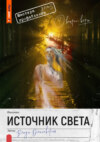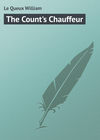Gatunki i tagi
Ograniczenie wiekowe:
12+Data wydania na Litres:
19 marca 2017Objętość:
490 str. 1 ilustracjaWłaściciel praw:
Public DomainСлайдер с книгами
Fb2Archiwum ZIP 392 КБ
Odpowiedni dla smartfonów, tabletów z Androidem, czytników e-booków (z wyjątkiem Kindle) i wielu programów
HTML
Możesz czytać książkę bezpośrednio w przeglądarce
HTMLArchiwum ZIP 390.6 КБ
Możesz czytać książkę bezpośrednio w przeglądarce
TXT
Można otworzyć na prawie każdym urządzeniu
TXTArchiwum ZIP 291.7 КБ
Można otworzyć na dowolnym komputerze
RTFArchiwum ZIP 405.8 КБ
Można otworzyć na dowolnym komputerze
PDF A4
Otwiera się w programie Adobe Reader
PDF A6
Zoptymalizowany i odpowiedni dla smartfonów
Mobi
Odpowiedni dla czytników Kindle i aplikacji na Androida
Epub
Odpowiedni dla urządzeń z iOS (iPhone, iPad, iMac) i większości aplikacji do czytania
iOS.Epub
Idealne dla iPhone'a i iPada
Fb3
Rozwój formatu FB2




















